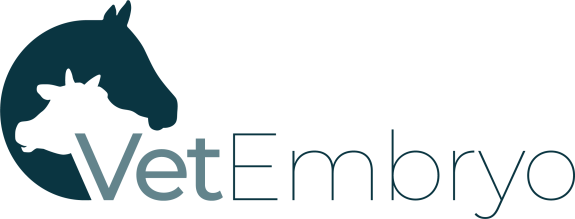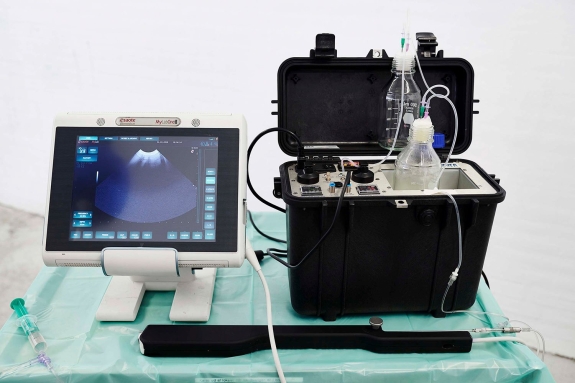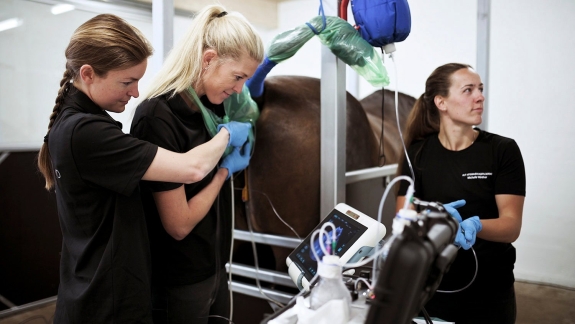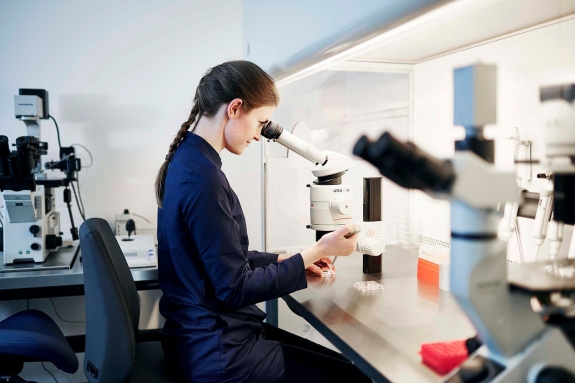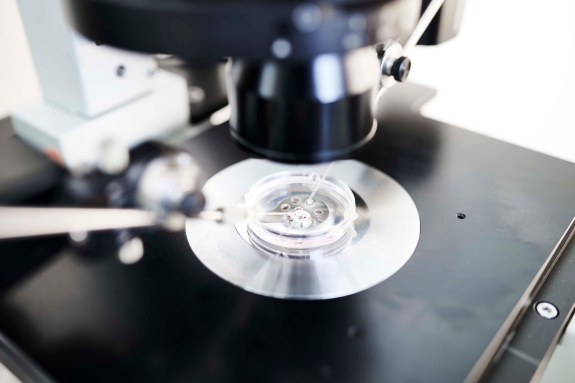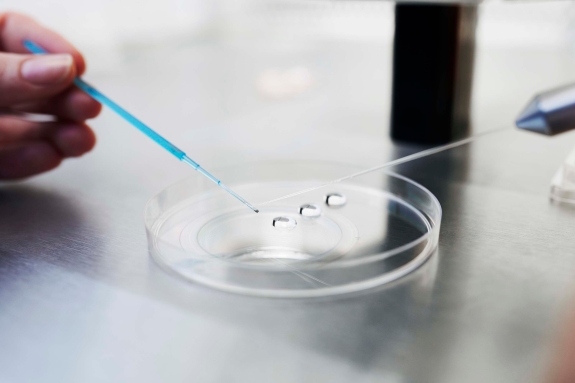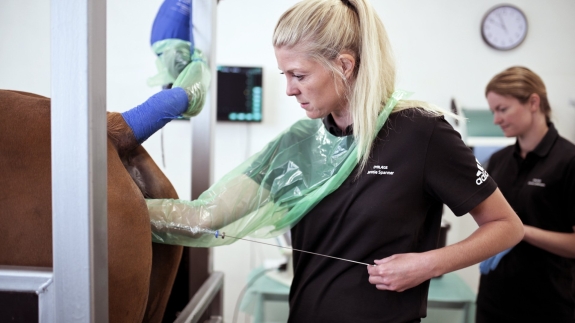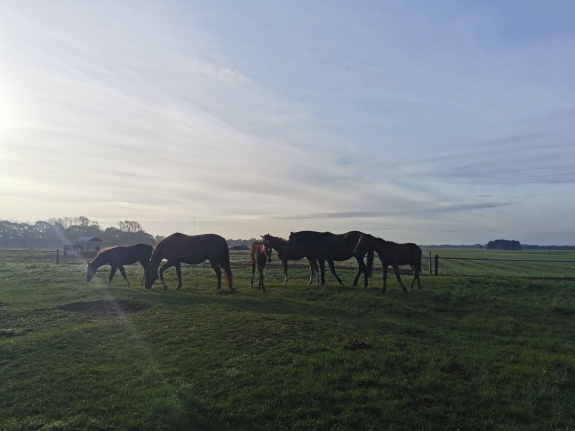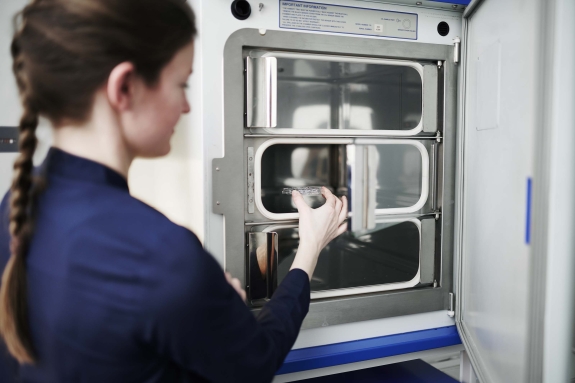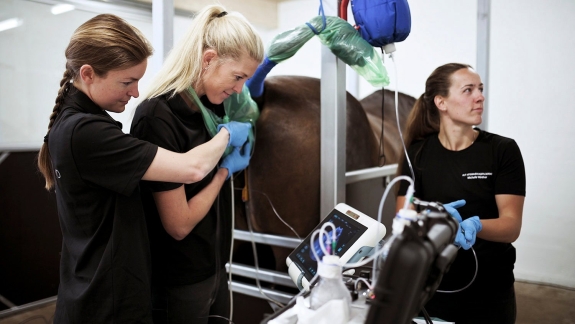Why a Code of Ethics?
Horse welfare is very important to us, particularly in the context of operating a commercial business involving horses, which requires a commitment to good horse welfare and ethical practices. We are driven by our passion for reproduction and our love of horses, and we believe horse breeding should be conducted with great respect for the horse as a living individual. With this code of ethics, we want to clarify our understanding of ethical practices and horse welfare, specifically within the scope of our work involving oocyte pick-up and in vitro fertilization.
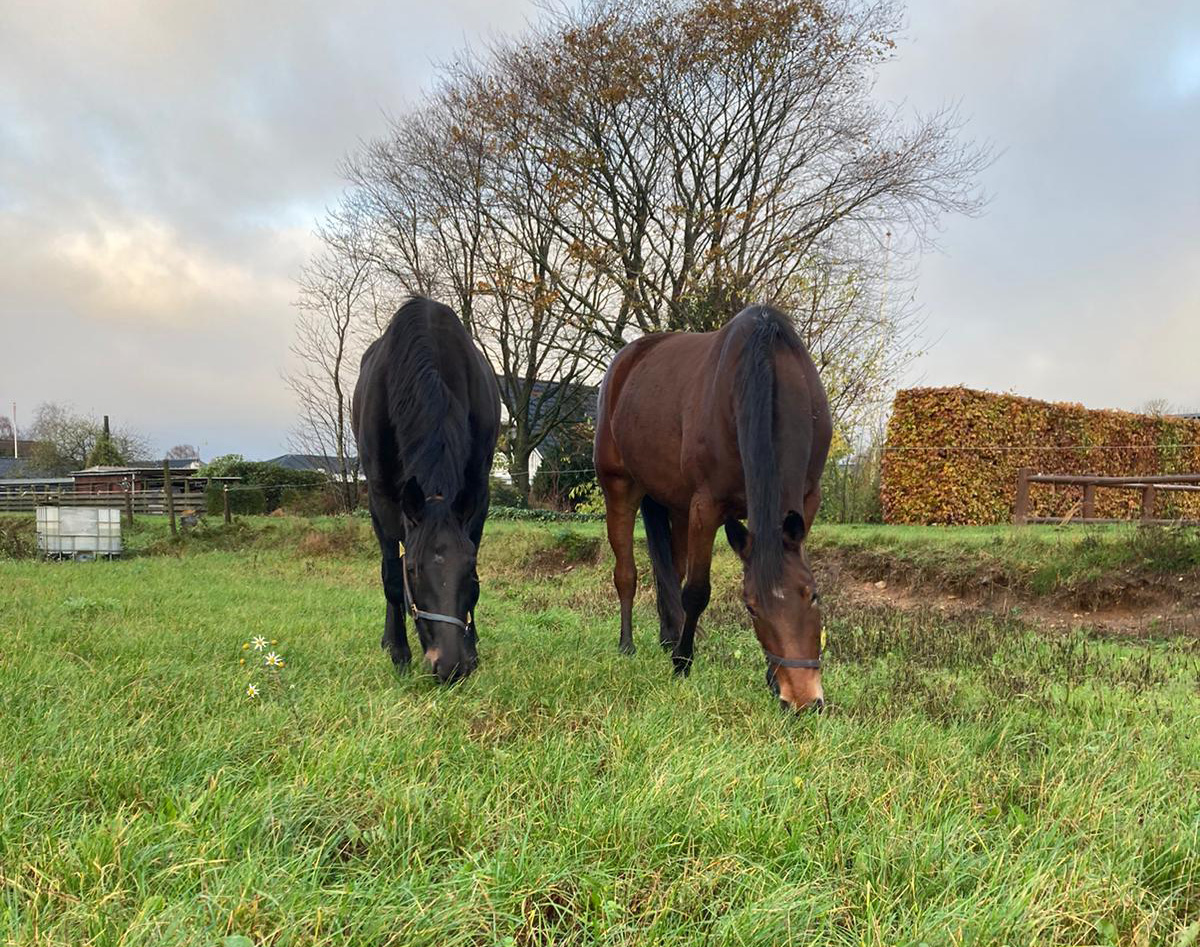
When the eggs are retrieved (OPU)
Oocyte pick-up is characterized as an elective (optional) and invasive procedure as it involves the insertion of a needle. It is a brief procedure conducted under standing sedation and without the use of hormones. Oocyte pick-up is not a technique that is suitable for all horses, and we spend a lot of time assessing whether it is suitable for the individual horse by sensing and observing how the horse tolerates the procedure.
At VetEmbryo, we’ve developed a set procedure for how to sedate the mares during oocyte pick-up. In our procedure, we’ve determined the highest dose of anaesthesia each horse is allowed to receive. We prioritize the horse being comfortable and calm when sedated. If this requires having a friend by its side, then that is how we will proceed. This way, the horse is calm and relaxed throughout the procedure. If the horse has received the prescribed maximum dose of anaesthetic but starts to wake up before we’ve emptied all follicles, we will terminate the procedure. We never compromise on the wellbeing of the mare, even if this means retrieving slightly fewer oocytes. It is important to us that the mare is healthy and well immediately after the oocyte pick-up. Using our approach, it is possible to achieve a good balance between commercial interests and the welfare of the horse.
For anatomical reasons, oocyte pick-up may not be a suitable solution for all mares. The ovaries are attached to a connective tissue band, and if the mare hasn’t carried a foal to term, this band can be very tight, especially in younger mares. In some cases, the ligament is so tight that we cannot perform the oocyte pick-up without causing discomfort to the mare. In these cases, we refrain from performing the procedure. For some mares, the suspension of one ovary may be very tight, in which case we may choose to retrieve oocytes only from the other ovary.
Pain perception, a term that describes the way we experience pain, varies greatly from horse to horse. To ensure that none of the horses feel discomfort during or after the oocyte pick-up, we administer pain medication before and after the procedure. For the vast majority of horses, only one pain management procedure is needed, but for some, it may be necessary to administer pain medication again in the evening or the following day.
After the oocyte pick-up, the mare must be allowed to wake up properly before being transported home. This usually takes one or two hours. We want to ensure that the mare is fully awake and alert, and has regained her appetite before departure, regardless of whether she is used to being transported or not.
Monitoring each mare after an oocyte pick-up procedure is crucial to determine whether she is comfortable. The mares are stabled next to the clinic, separated by a large glass section. This allows us to continuously make sure that each mare is well. In addition, all our stables are monitored by video surveillance as a supplement to physical observation.
Since oocyte pick-up is an elective procedure that has the potential to cause discomfort/pain to the mare, we believe it is important to have a clear ethical framework for how we act. Our understanding of good ethical practice during oocyte pick-up includes the following:
- Each mare is assessed individually to determine if OPU is a suitable technique.
- Ensuring adequate pain relief coverage during and after the procedure.
- Minimizing the number of injections.
- Establishing a maximum dose for anaesthesia.
- If the mare experiences obvious discomfort during the procedure, below the set amount of sedation, the procedure is terminated.
- If the mare is anatomically unsuitable for the procedure, the procedure is not performed.
- If the mare is anatomically unsuitable for the procedure unilaterally, i.e., in one ovary, the procedure will not be performed on this ovary.
- We do not perform oocyte pick up on one- and two-year-old mares.
- We only retrieve eggs from mares that are presented in good condition and overall good health.
- Monitoring the mare for any needed pain management in the evening or the day after OPU.
- Monitoring the mare’s temperature for the following two days
- The mare should not be exercised in the days after the OPU procedure but may be walked in the paddock.
Stabling at VetEmbryo
Horses are social creatures and research shows that they form relationships just as we do. Positive social relationships help to reduce stress levels. We prioritize that:
- The mares make a friend, pairing the mares together whenever possible.
- The mares spend most of the day in the paddock. We have large paddocks at our disposal all year round.
- The mares are fed plenty of high-quality roughage and the proper supplement of vitamins and minerals.
- The stables are peaceful and quiet when the mares are out of the paddock and the day’s tasks are completed.
We make an effort to find out which mares thrive together. This applies to both our donor mares and our brood mares. As a result, we rarely encounter injuries to the horses after they’ve been in the paddock.
It is one of our great joys to watch how the mares interact with each other. We find that when the social needs of the horses are met, they thrive better. A mare that is thriving will also have a better reproductive balance.
Our collaboration with clients
We respect our clients’ right to confidentiality. We do not disclose confidential information unless the law requires us to do so. A good professional relationship is largely based on mutual trust and respect. For us, decency, openness, and transparency are key factors in a good collaboration. We value our clients and the trust they place in us and their responsiveness to our recommendations. We are aware of our limitations, but we also know that we are among the world’s best in the field of equine in vitro fertilization.
Using semen for ICSI
We have a strong collaboration with many of Europe’s stallion stations and have semen from more than 350 stallions available in our laboratory. Anyone who submits semen to our laboratory signs a contract granting the right to use the semen for ICSI and verifies the specific agreements the semen is subject to.
The owner of the stallion/sperm pays a monthly fee to have the sperm stored in our laboratory, but settlement for the use of the sperm is made directly between the client and the owner of the sperm.
VetEmbryo is thus not financially involved in the sale of sperm and does not receive a commission, but we are happy to guide and advise our clients based on professional experience with the sperm we have available.
EU certified laboratory
Our laboratory is EU certified. In short, this means that the Danish Veterinary and Food Administration has approved our laboratory, clinic, and all associated procedures, and assessed that we fulfil all EU requirements in this area. We are very proud of this certification and take great responsibility in complying with EU requirements and regulations. We are visited annually by the Danish Veterinary and Food Administration, which conducts a detailed review of the entire laboratory as well as our procedures, and assesses whether we continue to comply with current EU regulations. This requires a lot of work, but it helps to, among other things, protect our horses from outbreaks of infectious diseases. Our EU certification also means that we are authorized to receive and send eggs, semen, and embryos across national borders and to store them under EU status. It also means that all sent and received sperm, eggs, and embryos must fulfil EU health status requirements. Please contact us if you want to know more about EU health status requirements.
